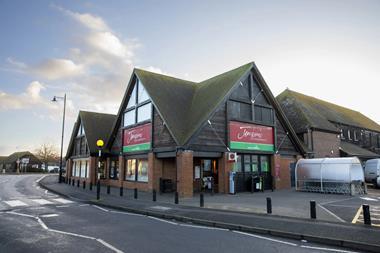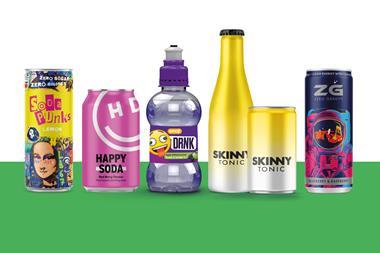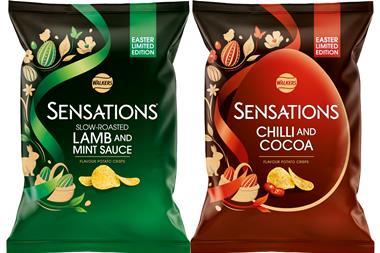>>how the food police can trigger a company turnaround
>>THE ISSUES THAT MATTER, FROM THE PEOPLE INVOLVED
Stop being so patronising about north from Susan Dowson, Cudworth, South Yorkshire
I was fascinated to read up on McDonald’s financial results this week as it reminded me how corporations can find themselves backed into a corner from which they either have to come out fighting or die.
About three years ago, I really did wonder whether poor old Ronald McDonald would soon be out of a job, because the chain was in a hell of a mess.
It’s easy to understand why the business had gone into freefall. McDonald’s had not responded particularly well to consumer concerns about practically every aspect of its business - from its environmental record, to the quality of its food, to the way it marketed to kids. Not only was its image badly tarnished, but customers were also being turned off by a menu that looked pretty boring in a world full of trendy sandwich bars and coffee shops. Then, just as they thought things could not get much worse, the junk food nation debate began raging.
This week, though, the company reported some pretty impressive results - with same store sales up 4%. Even in Europe, where the UK has been particularly difficult, sales are rebounding. So what’s happened? McDonald’s formula for success was built around simplicity and consistency in everything it did; complexity was anathema. But when the company found itself backed into the corner by its critics, saw consumers going elsewhere, and then realised the health lobby was coming in for the kill, it ripped up that old model and reinvested in a new strategy built around better menus, stores and marketing. The results speak for themselves.
One of the lessons of the story is - don’t wait until you are backed into a corner before responding to criticism. Become more consumer-focused earlier on. Another lesson is how corporations respond to what is dubbed ‘brand terrorism’. And in McDonald’s case that did not just mean dealing with internet gripe sites but also included being the star of Morgan Spurlock’s film.
However, the most important thing to understand is that McDonald’s would not have taken the tough decisions needed to remodel its business without the attacks from the health activisits. They were the catalyst for real change. It is the food police who have lobbied so hard against McDonald’s who are, in fact, directly responsible for the chain’s renewed health. I bet they love that thought!
Sir; I have rarely read an article as patronising about the north as the one about Waitrose in last week’s issue of The Grocer (‘Northern Exposure’, p38), which pointed to research seeming to suggest that the retailer is wasting its time here.
I live in an ex-mining village 20 miles from Sheffield. Michael Parkinson was born here, Darren Gough was born two miles away and Jenni Murray (presenter of Radio 4’s Woman’s Hour) was my form prefect at school.
I had thought that in the 21st century we’d stopped talking about it being grim up north.
The north has had more than its fair share of deprivation, unlike the experience of much of the affluent south,but don’t for one minute believe that we are all sat here in flat caps, with our whippets and pigeons, wondering what the foreign muck in the posh shops is.
The north has a similar demographic picture to the rest of the country; good, bad and indifferent. I used only to get the chance to shop at Waitrose if we ventured into the southern end of the country.
I have worked all over the UK and, believe it or not, many of us northerners are educated, widely read and travelled and - guess what - we eat good food and deserve to be able to shop for it. My son is a highly qualified chef here in Yorkshire and he’s not the only one by any means. Please - get real.
super sizing mcdonald’s
>>THE ISSUES THAT MATTER, FROM THE PEOPLE INVOLVED
Stop being so patronising about north from Susan Dowson, Cudworth, South Yorkshire
I was fascinated to read up on McDonald’s financial results this week as it reminded me how corporations can find themselves backed into a corner from which they either have to come out fighting or die.
About three years ago, I really did wonder whether poor old Ronald McDonald would soon be out of a job, because the chain was in a hell of a mess.
It’s easy to understand why the business had gone into freefall. McDonald’s had not responded particularly well to consumer concerns about practically every aspect of its business - from its environmental record, to the quality of its food, to the way it marketed to kids. Not only was its image badly tarnished, but customers were also being turned off by a menu that looked pretty boring in a world full of trendy sandwich bars and coffee shops. Then, just as they thought things could not get much worse, the junk food nation debate began raging.
This week, though, the company reported some pretty impressive results - with same store sales up 4%. Even in Europe, where the UK has been particularly difficult, sales are rebounding. So what’s happened? McDonald’s formula for success was built around simplicity and consistency in everything it did; complexity was anathema. But when the company found itself backed into the corner by its critics, saw consumers going elsewhere, and then realised the health lobby was coming in for the kill, it ripped up that old model and reinvested in a new strategy built around better menus, stores and marketing. The results speak for themselves.
One of the lessons of the story is - don’t wait until you are backed into a corner before responding to criticism. Become more consumer-focused earlier on. Another lesson is how corporations respond to what is dubbed ‘brand terrorism’. And in McDonald’s case that did not just mean dealing with internet gripe sites but also included being the star of Morgan Spurlock’s film.
However, the most important thing to understand is that McDonald’s would not have taken the tough decisions needed to remodel its business without the attacks from the health activisits. They were the catalyst for real change. It is the food police who have lobbied so hard against McDonald’s who are, in fact, directly responsible for the chain’s renewed health. I bet they love that thought!
Sir; I have rarely read an article as patronising about the north as the one about Waitrose in last week’s issue of The Grocer (‘Northern Exposure’, p38), which pointed to research seeming to suggest that the retailer is wasting its time here.
I live in an ex-mining village 20 miles from Sheffield. Michael Parkinson was born here, Darren Gough was born two miles away and Jenni Murray (presenter of Radio 4’s Woman’s Hour) was my form prefect at school.
I had thought that in the 21st century we’d stopped talking about it being grim up north.
The north has had more than its fair share of deprivation, unlike the experience of much of the affluent south,but don’t for one minute believe that we are all sat here in flat caps, with our whippets and pigeons, wondering what the foreign muck in the posh shops is.
The north has a similar demographic picture to the rest of the country; good, bad and indifferent. I used only to get the chance to shop at Waitrose if we ventured into the southern end of the country.
I have worked all over the UK and, believe it or not, many of us northerners are educated, widely read and travelled and - guess what - we eat good food and deserve to be able to shop for it. My son is a highly qualified chef here in Yorkshire and he’s not the only one by any means. Please - get real.
super sizing mcdonald’s

















No comments yet